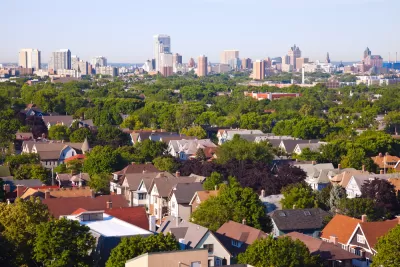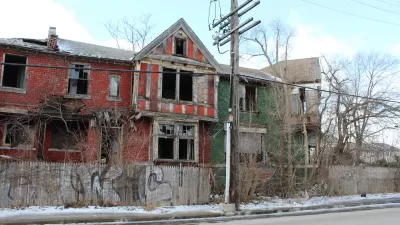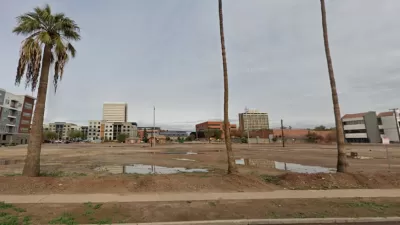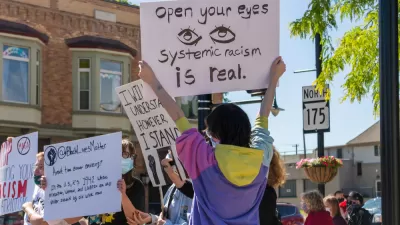A record 66 developers applied to refurbish 150 vacant, city-owned homes.

“Milwaukee’s $15 million proposal to renovate 150 vacant, city-owned homes is moving forward,” reports Jeramey Jannene in Urban Milwaukee. “The city will sell the houses for as little as $1, provide a development subsidy estimated at $75,000 based on the renovation cost estimates and grant a $5,000 workforce subsidy. After renovation, the properties may be sold to owner-occupants, rented out or placed into a rent-to-own program.”
The city selected 14 non-profit and for-profit operators from a record 66 applicants that responded to its Request for Proposals (RFP) to rehabilitate the homes. “The program is designed to create affordable housing, expand the city’s tax base and create jobs.” The plan was scaled down from a proposal to rehab all 700 city-owned homes. According to the article, “The program is focused on vacant houses. Tenants in a house at the time of foreclosure are allowed to continue living there with DCD assuming the role of landlord.”
The program prevents developers from ‘flipping’ properties to another owner (except an owner-occupant). “A deed restriction will require a sold property to be owner-occupied for five years and owners would be required to complete eight hours of home-buyer counseling through either Acts Housing, Housing Resources, Inc. or the United Community Center.”
FULL STORY: 66 Developers Bid To Rehab City’s Vacant Homes

Alabama: Trump Terminates Settlements for Black Communities Harmed By Raw Sewage
Trump deemed the landmark civil rights agreement “illegal DEI and environmental justice policy.”

Study: Maui’s Plan to Convert Vacation Rentals to Long-Term Housing Could Cause Nearly $1 Billion Economic Loss
The plan would reduce visitor accommodation by 25% resulting in 1,900 jobs lost.

Planetizen Federal Action Tracker
A weekly monitor of how Trump’s orders and actions are impacting planners and planning in America.

Wind Energy on the Rise Despite Federal Policy Reversal
The Trump administration is revoking federal support for renewable energy, but demand for new projects continues unabated.

Passengers Flock to Caltrain After Electrification
The new electric trains are running faster and more reliably, leading to strong ridership growth on the Bay Area rail system.

Texas Churches Rally Behind ‘Yes in God’s Back Yard’ Legislation
Religious leaders want the state to reduce zoning regulations to streamline leasing church-owned land to housing developers.
Urban Design for Planners 1: Software Tools
This six-course series explores essential urban design concepts using open source software and equips planners with the tools they need to participate fully in the urban design process.
Planning for Universal Design
Learn the tools for implementing Universal Design in planning regulations.
Caltrans
Smith Gee Studio
Institute for Housing and Urban Development Studies (IHS)
City of Grandview
Harvard GSD Executive Education
Toledo-Lucas County Plan Commissions
Salt Lake City
NYU Wagner Graduate School of Public Service





























